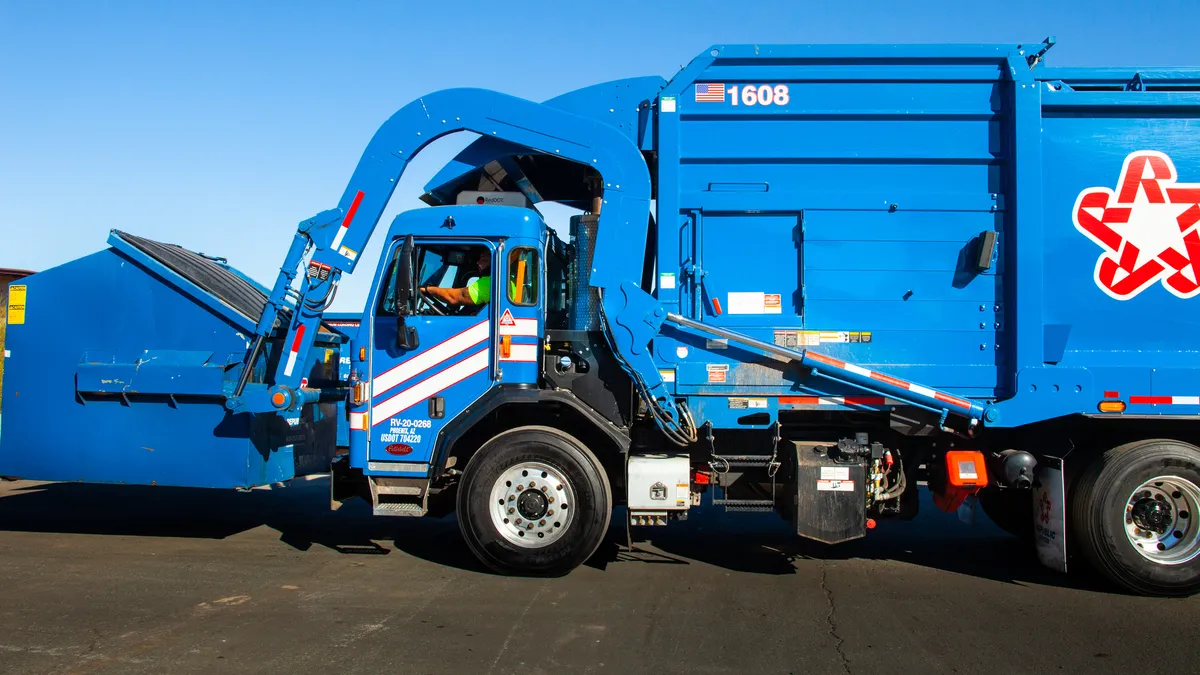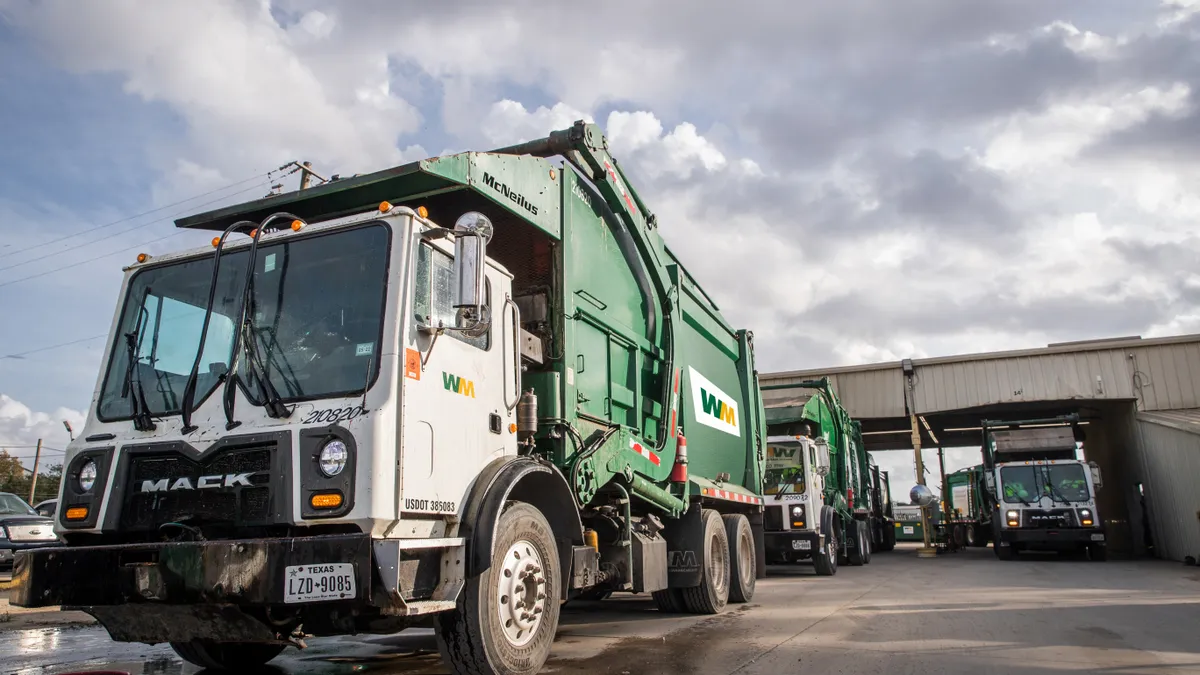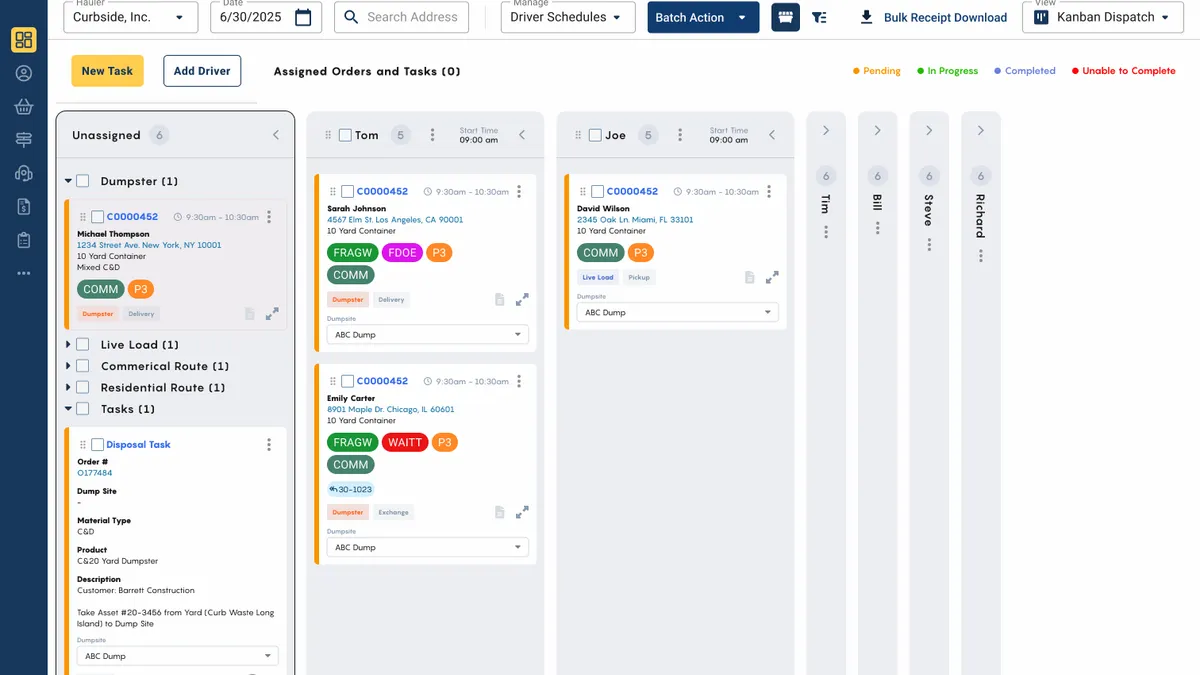Nearly six months after their last collective bargaining agreement expired, the workers at ecomaine have finally approved a new three-year contract. Ordinarily a cause for celebration, this may be one of the most divisive things to happen at the nonprofit in years due to a controversial new rotating shift requirement.
The 42-year-old organization serves more than 70 member municipalities throughout southern Maine via one WTE facility, a single-stream MRF and an ash landfill. An estimated 85 employees work at ecomaine's primary location in Portland, with about half of them represented by the International Union of Operating Engineers (IUOE) Locals 4 and 877.
On Wednesday evening, according to sources, those union employees voted 23-19 to approve terms recommended by a mediator for a new three-year collective bargaining agreement (CBA). Retroactive to July 1, 2018, the deal will run through June 30, 2021.
It comes with a 3% cost of living adjustment (COLA) for the first two years and 2.5% for the third, along with a $2.50 shift differential. The deal also includes a one-time raise this year of $1 for truck driver laborers, WTE laborers and custodians; and $2 for recycling equipment operators and the lead recycling operator.
The operations team, the only positions required to move to a rotating 12-hour shift schedule, did not receive an additional raise beyond the standard COLA. While their pay is toward the higher end of the spectrum under the new CBA, day shift operators are loathe to lose schedule seniority. Some even describe this as an effort to encourage early retirement.
Ecomaine is reportedly arguing that it's become harder to recruit night shift workers when the pace of attrition on days is so slow — but the full intentions of management in this process remain unknown.
Both ecomaine and Local 877 (the larger of the two locals) declined interview requests. Ecomaine also declined to answer any specific fact-checking questions via email. Ahead of Wednesday's vote, the two shared a signed joint statement with Waste Dive.
“ecomaine and Local 877 continue to negotiate in good faith. Together, we have hired a mediator to assist both parties in coming to a mutually acceptable resolution. It appears that we are on the right track, and we both remain optimistic at the possibility of this resolution.

Kevin Roche – Brian Christo
ecomaine CEO – Local 877 President
No further statements have been made by ecomaine since the vote, but its management is said to be pleased with the results.
Protracted negotiations
In the absence of more insight from ecomaine or IUOE, the best information available comes from public documents, current employees who spoke on the condition of anonymity, and one former employee whose exit after more than a decade on the job made waves earlier this fall.
As with any workplace, opinions differ based on positions within the organization, tenure and personality. The following perspective comes from employees with a range of experience at ecomaine. Because the MRF has more temporary staffing, the more established employees are at the WTE facility and have also had more to say about the labor negotiations.
While the 24/7 requirements of operating a WTE facility can be taxing, ecomaine has traditionally been viewed as a comparable if not better option to other area power plants such as Calpine's Westbrook Energy Center or the Wyman Energy Center on Cousins Island.
The pay is considered good, time-off requests can be accommodated on short notice and entry-level workers have a chance to move up. Younger employees, some fresh out of the Maine Maritime Academy, are said to view this as a prime opportunity to enter the energy sector. Paid vacation time increases steadily with seniority — upward of four weeks after 10 years, and five after 20.
But some of the longer-standing employees have also said benefits aren't as robust as they used to be. In 2014, ecomaine switched to a new type of health insurance that came with higher deductibles, lower company contributions and a new wellness program. At the time, ecomaine said it expected "healthier employees at a lower cost for both the employee and ecomaine as a result of implementing these programs."
Opinions differ on how that has played out, but at a time when health insurance premiums have largely gone up for companies, it's clear ecomaine started spending far less between FY14 and FY15.
The nonprofit's pattern of expenditures — more for capital projects, administrative salaries and higher executive COLAs; seemingly less for health insurance — have prompted critiques. Some employees are quick to point out ecomaine's strong financial position as a sign it could afford more. As of November, the nonprofit had $29.56 million in cash on hand.
Against this backdrop, the rotating shift conversation has become a further frustration. According to reports, management began raising the idea seriously more than a year ago and at one point considered hiring the Massachusetts-based company Circadian to assist with a potential schedule switch.
For the minority of union members that would be affected by the change, this became a sticking point they could rally others around in solidarity. When IUOE members first voted on a new contract in July, the results were 33-7 in opposition.
Over the summer, an outside mediator was brought in. Some employees grew restless for the expected raises and retroactive back pay. Others on night shifts continued to make their case for rotation. Local 877 reportedly continued to negotiate with the possibility of rotating shifts on the table, in a move that struck some as too accommodating.
As negotiations stretched into the fall, one employee decided to take the issue public. On the morning of Sept. 29, ahead of ecomaine's annual public open house, plant electrician and shop steward Mike Harwood parked his truck out front with two large signs mounted atop it: “Ecomaine EMPLOYEES WORKING UNDER AN EXPIRED CONTRACT SINCE JULY 1ST” and “TELL ecomaine TO GIVE ITS WORKERS A FAIR CONTRACT.”
From there, tensions rose. A series of incidents that started with conflict between day and night operators eventually led to Harwood installing surveillance cameras without ecomaine's knowledge to capture overnight performance issues that, according to him, were never addressed.
A second vote was held on slightly different contract terms in October. This time, it was tied 18-18. Reports indicate anxiety around potentially losing raises may have motivated the shift.
On Nov. 2, after receiving pushback for installing the cameras, Harwood submitted a resignation letter citing “blatant nepotism by senior management that goes unchecked as well as a lack of respect for plant seniority."
Heading into December, there was a growing sense that "no" votes might be losing ground.
Rationale for rotation
According to 2007 data (the most recent available) from the Bureau of Labor Statistics (BLS), an estimated 2.7% of the U.S. workforce operates on rotating shifts. While this practice is also employed at other WTE facilities around the country, the move will upend decades of precedent at ecomaine.
Circadian, the company that ecomaine considered hiring, deferred to its prior research when contacted by Waste Dive. A 2017 Circadian survey found that 71% of 24/7 companies used some form of rotating shifts, but also noted that "constantly shifting work and sleep times may increase employee fatigue." However, Circadian research has also found that working exclusively nights may be even more detrimental.
As described in a report from the National Institute for Occupational Safety and Health, the rotating method, while potentially resulting in greater overall worker fairness, is still physically and psychologically challenging. Studies of other occupations where shift work is common, such as health care or factory jobs, point to elevated health risks for digestive issues, diabetes, cardiovascular disease and lung cancer.
The direction of this rotation — whether employees go from days to nights, or vice versa — is said to be one of the most important factors. Multiple options have been presented to the ecomaine operators under the CBA terms, with varying amounts of time off between shift changes.
A 2016 Circadian report concluded that employee choice in the process is key:
"Who chooses the shift schedule, and how they choose it, is vital to its success. Management-mandated schedules often do not properly take into account the needs of employees and can result in increased employee fatigue, decreased morale, turnover, and absenteeism, and therefore sub-optimal 24/7 facility performance."
Night moves
The operations team has until the end of January 2019 to reach an agreement on what their new schedules will look like. No change will take effect until July 2019.
Opponents believe the switch may not be as simple as predicted. More senior employees might be apt to use paid vacation time or call out sick, requiring additional staffing to cover them. Some wonder whether the outcome might have been different if operators could somehow vote separately from their non-affected colleagues. Many were said to be nervous about the possibility of losing out on raises if the vote failed, leading to an extended fact-finding or arbitration process.
Amid a broader conversation in the national waste and recycling industry around recruitment, retention and career-building, this presents a unique situation. WTE facilities are 24/7 by nature — but they also rely on experienced operators to ensure they're running efficiently and maintaining the delicate balance required for such systems.
Like most industry operations, none of this is likely to rise to the level of public concern as long as waste keeps getting picked up and burned on time. The ecomaine facility sits at the dead-end of an industrial road near the airport, a self-contained and efficient unit, and will keep plugging away 24/7 just like it always has. Whether the operation will be run by staff that have decades, or years, of experience come next summer remains to be seen.
Correction: A previous version of this article said only crane operators would be affected by rotating shifts. This applies to the full operations team.

















